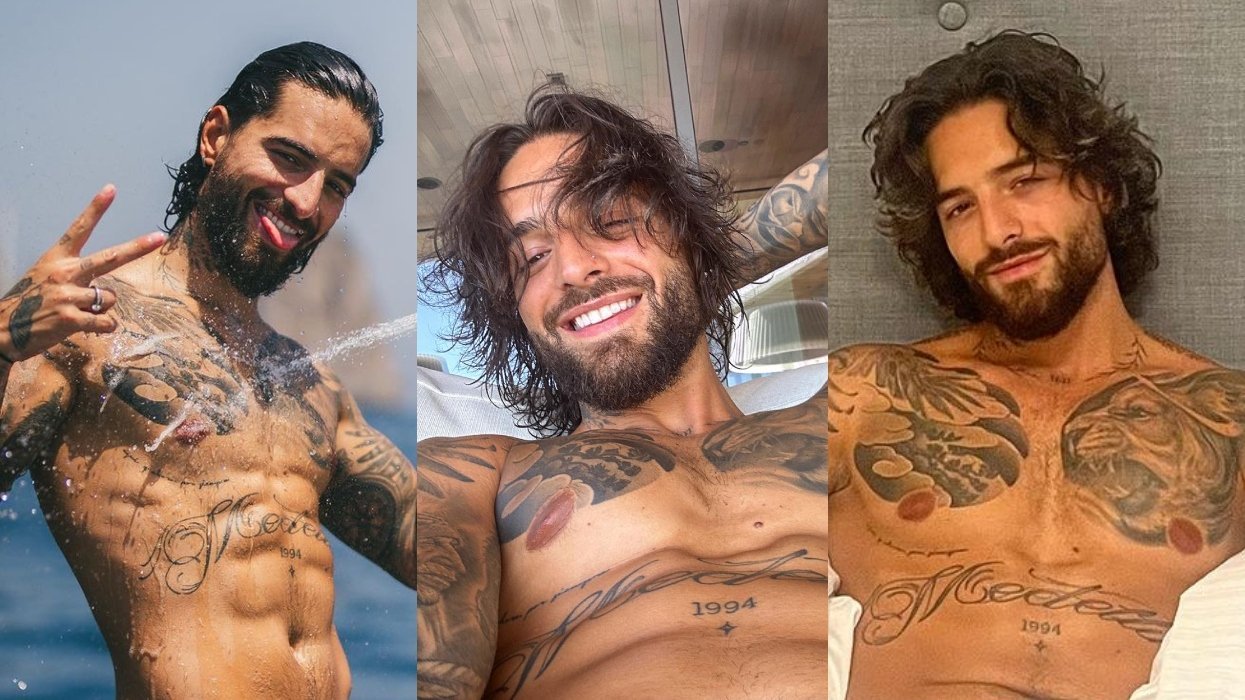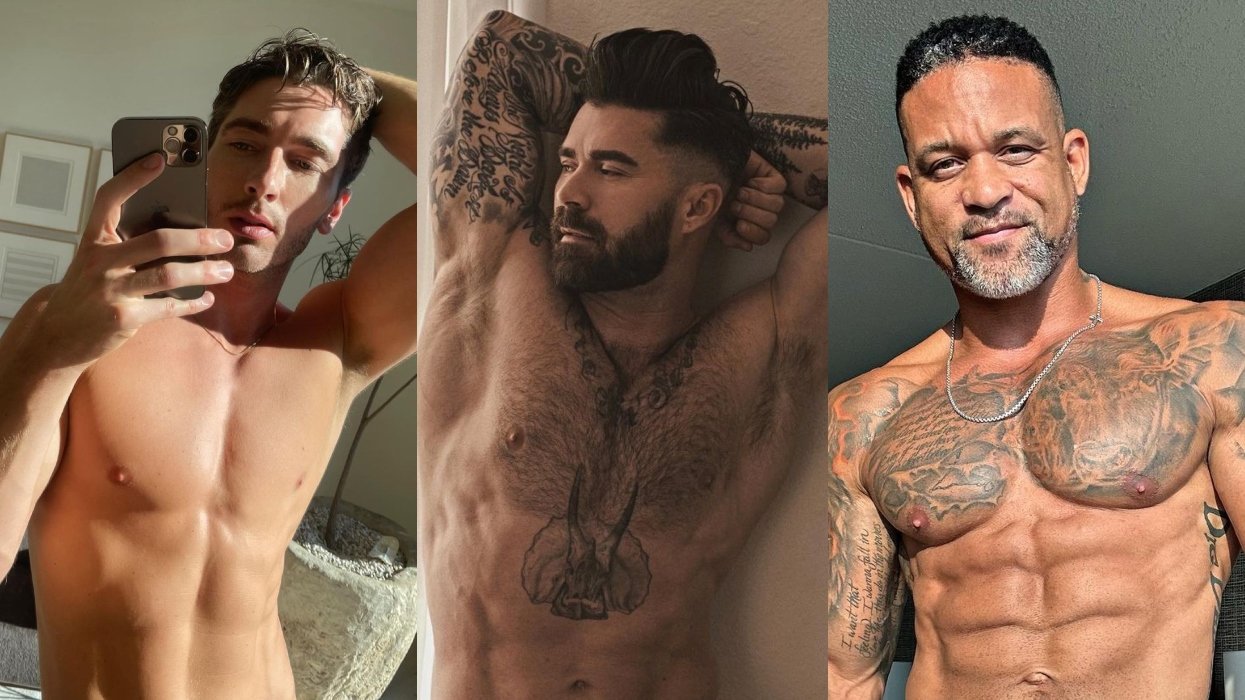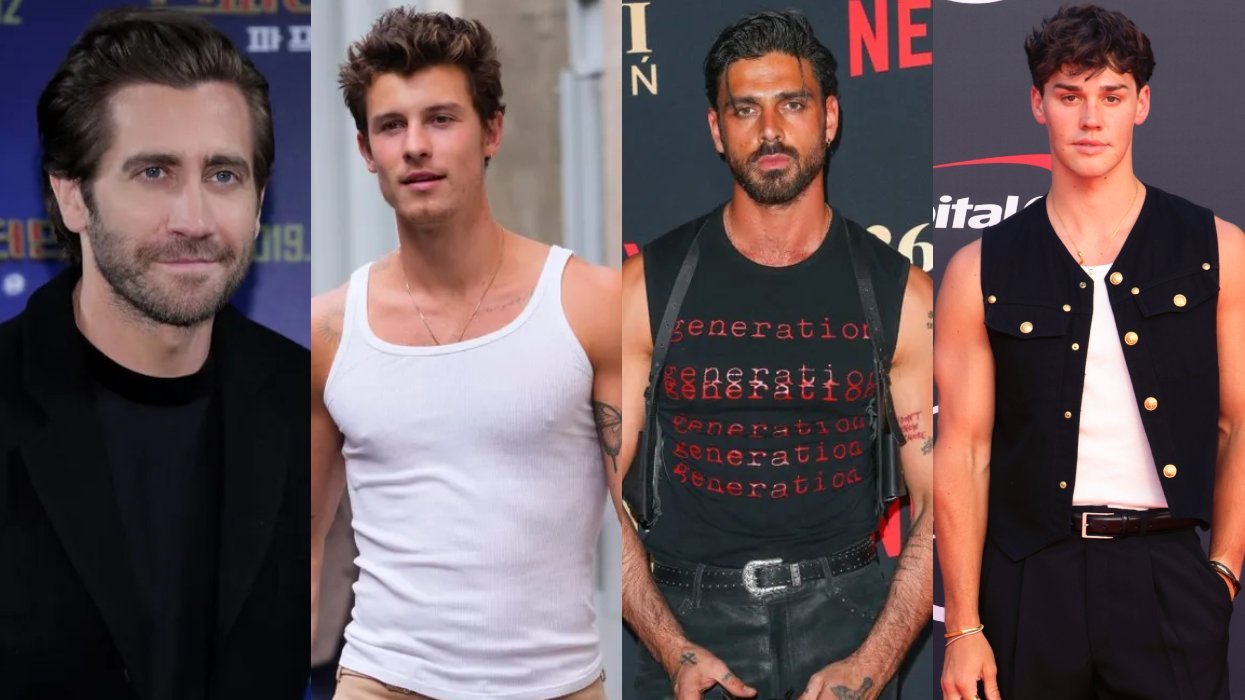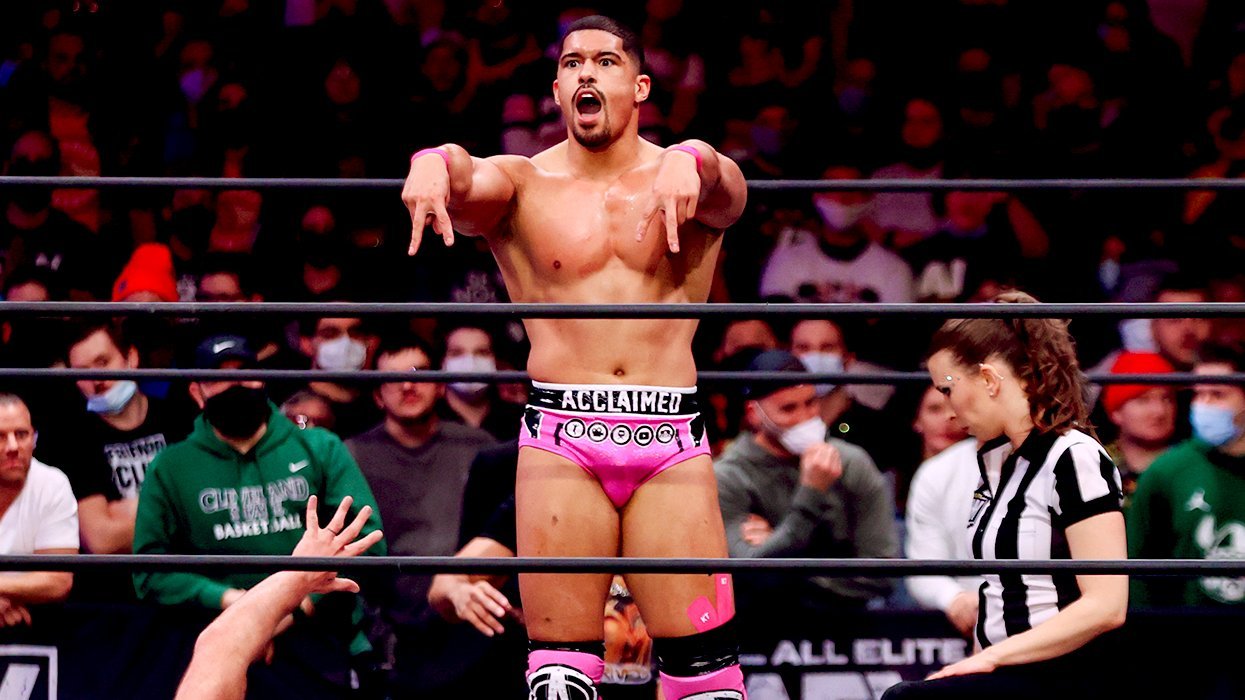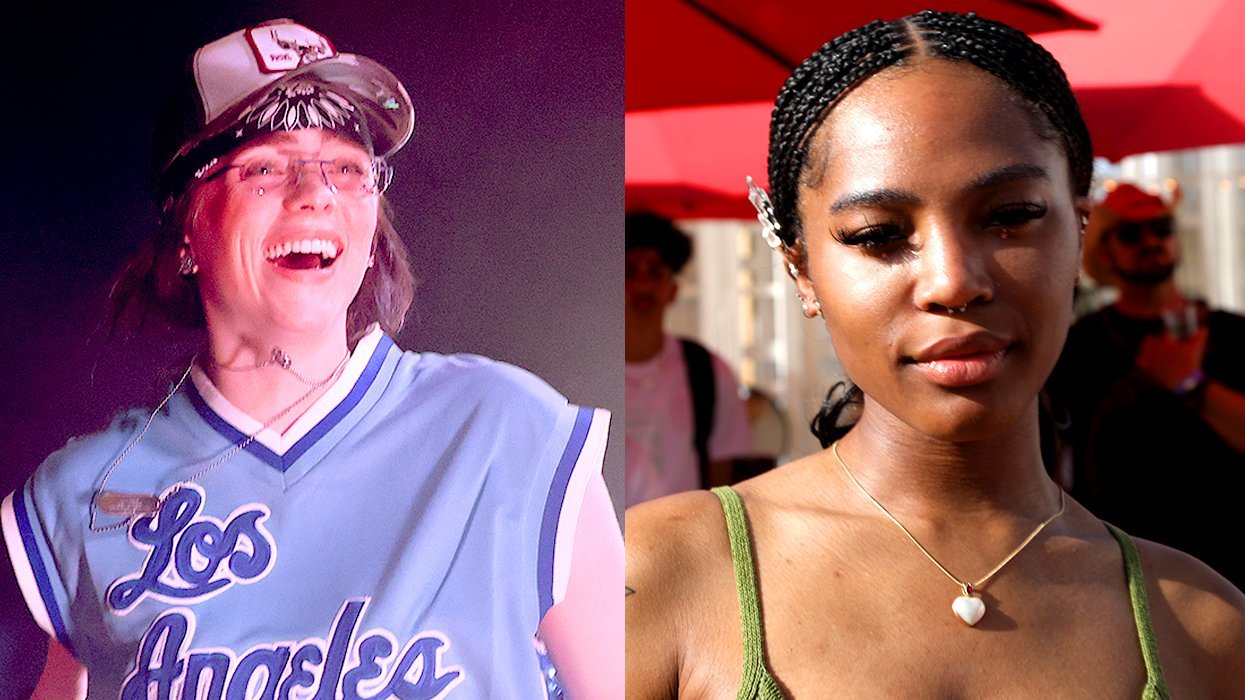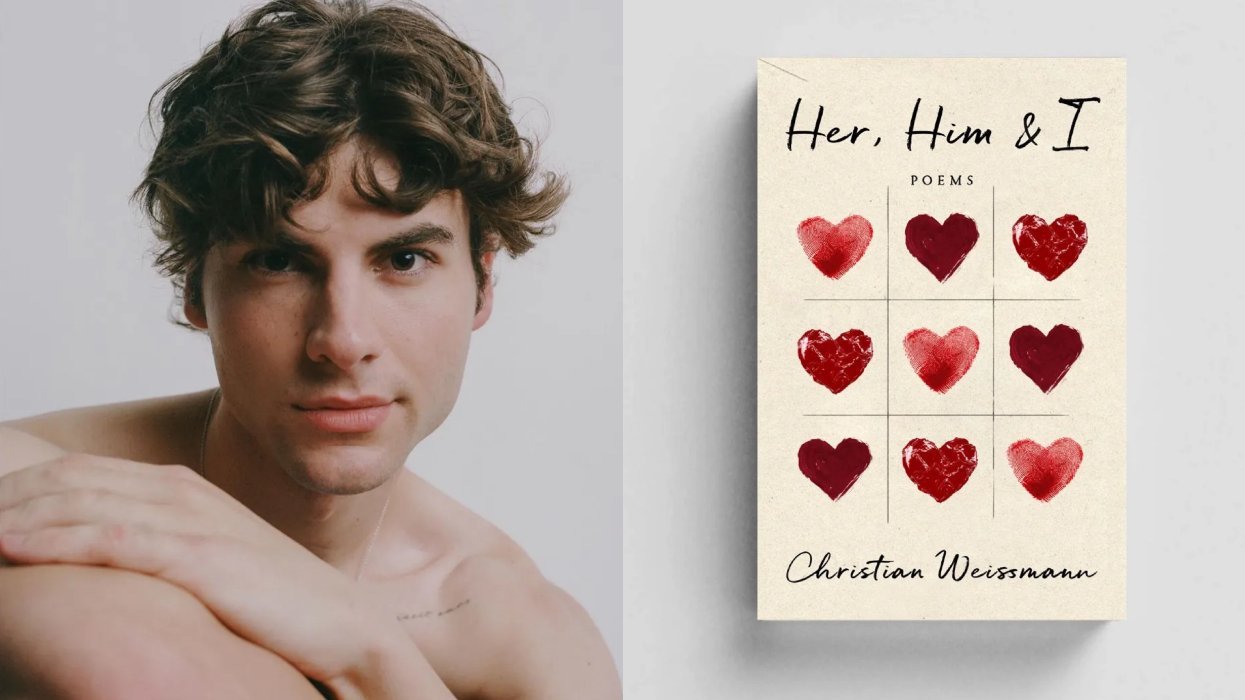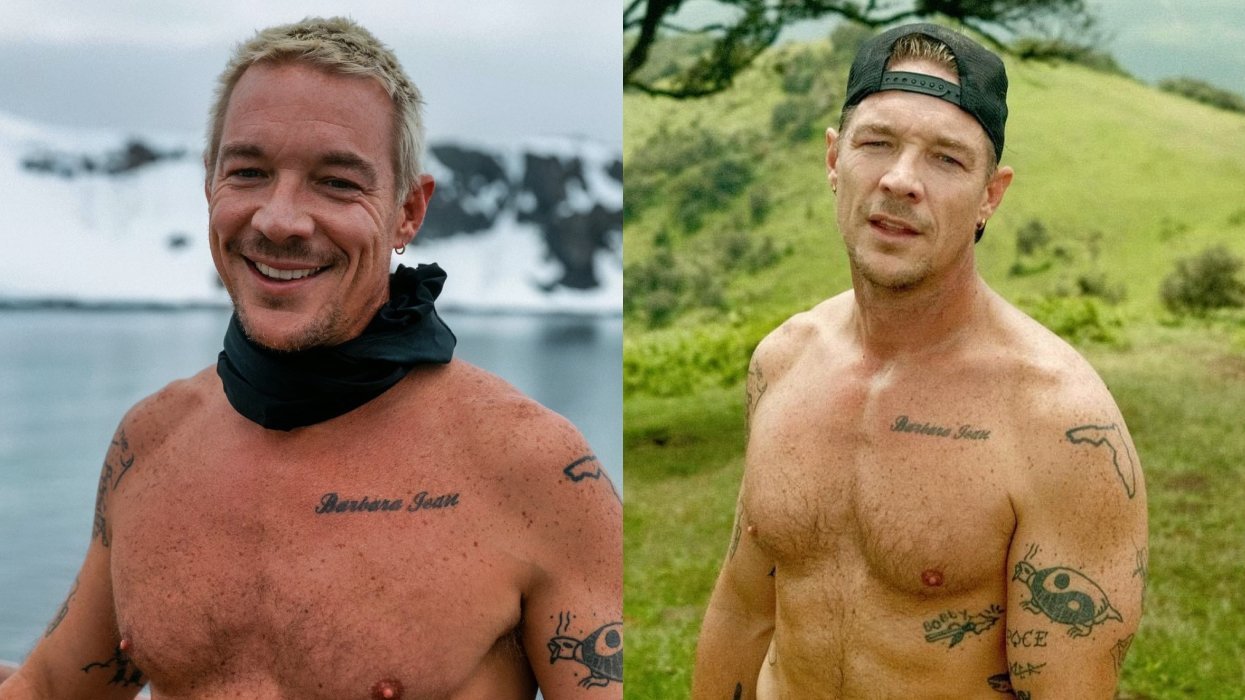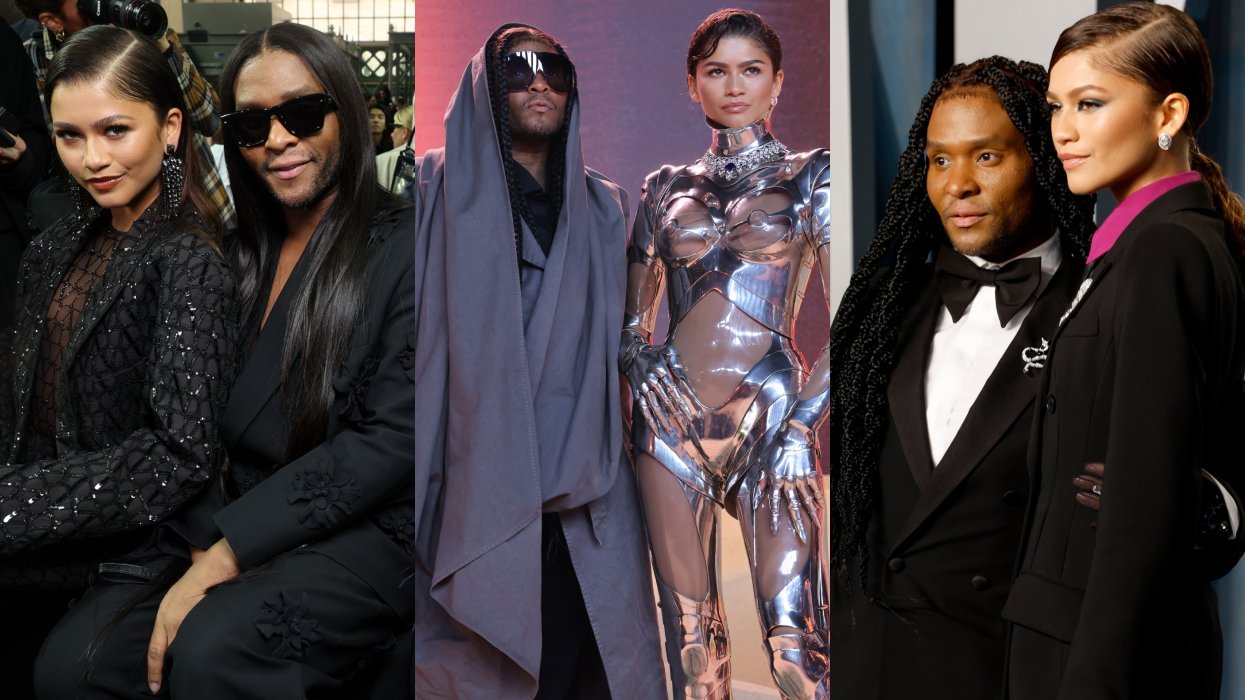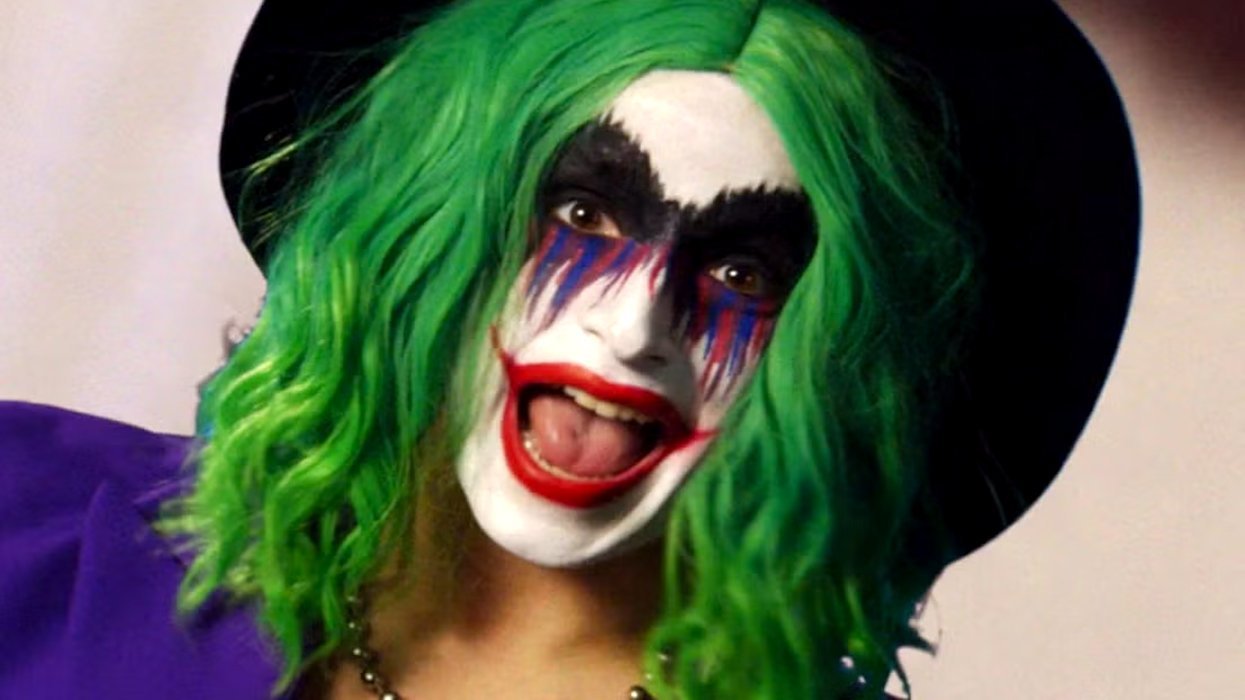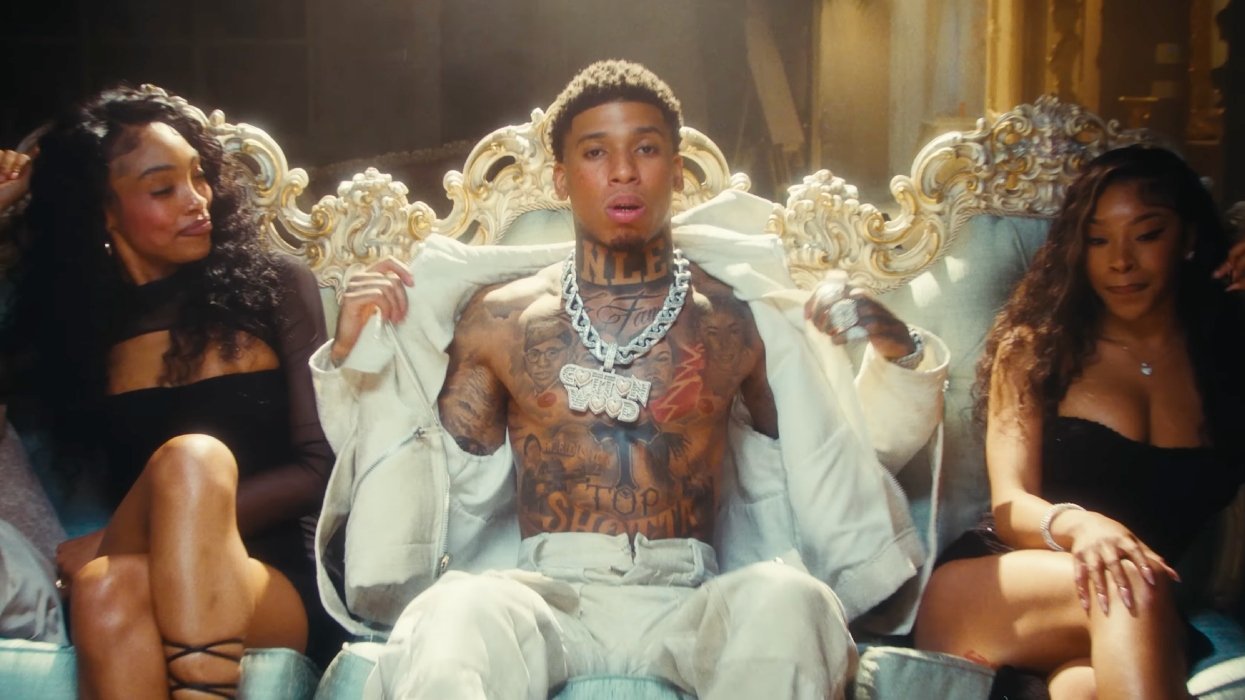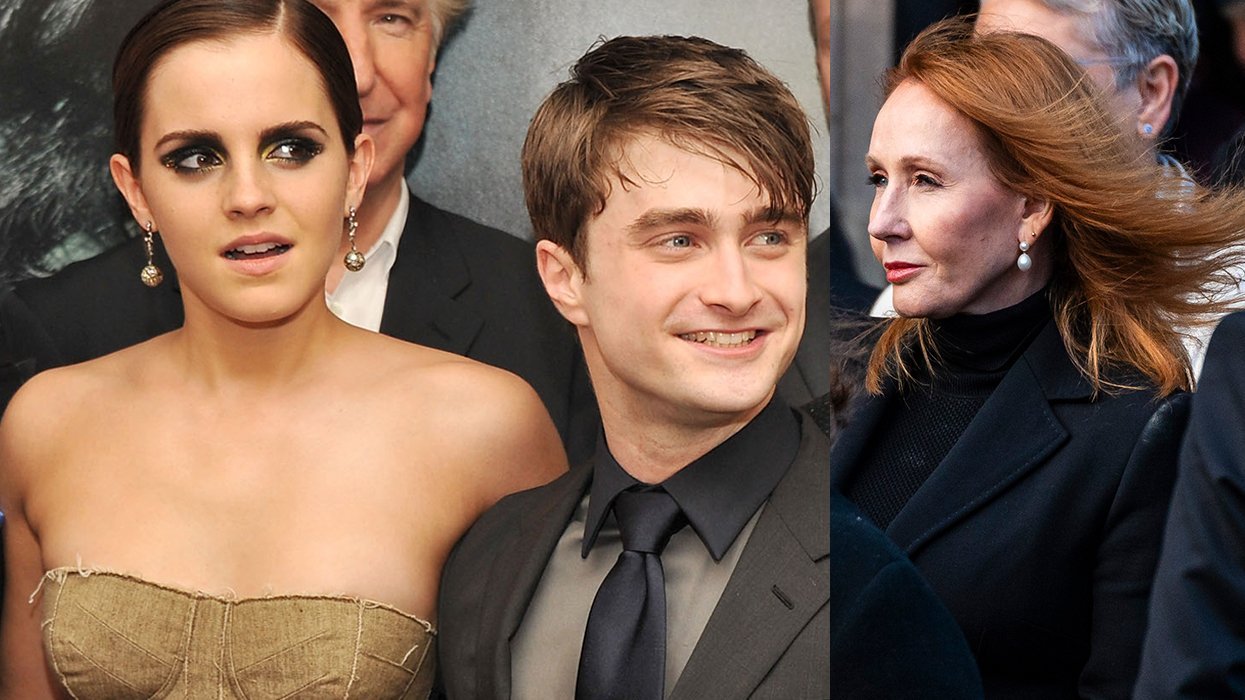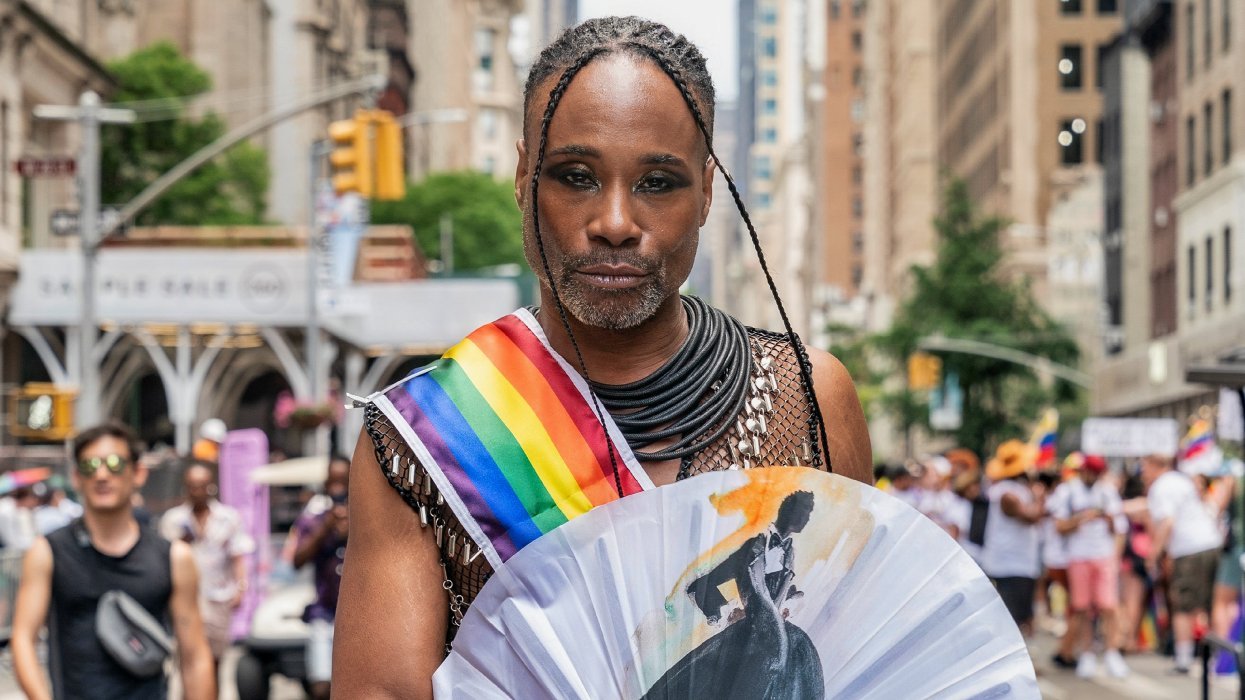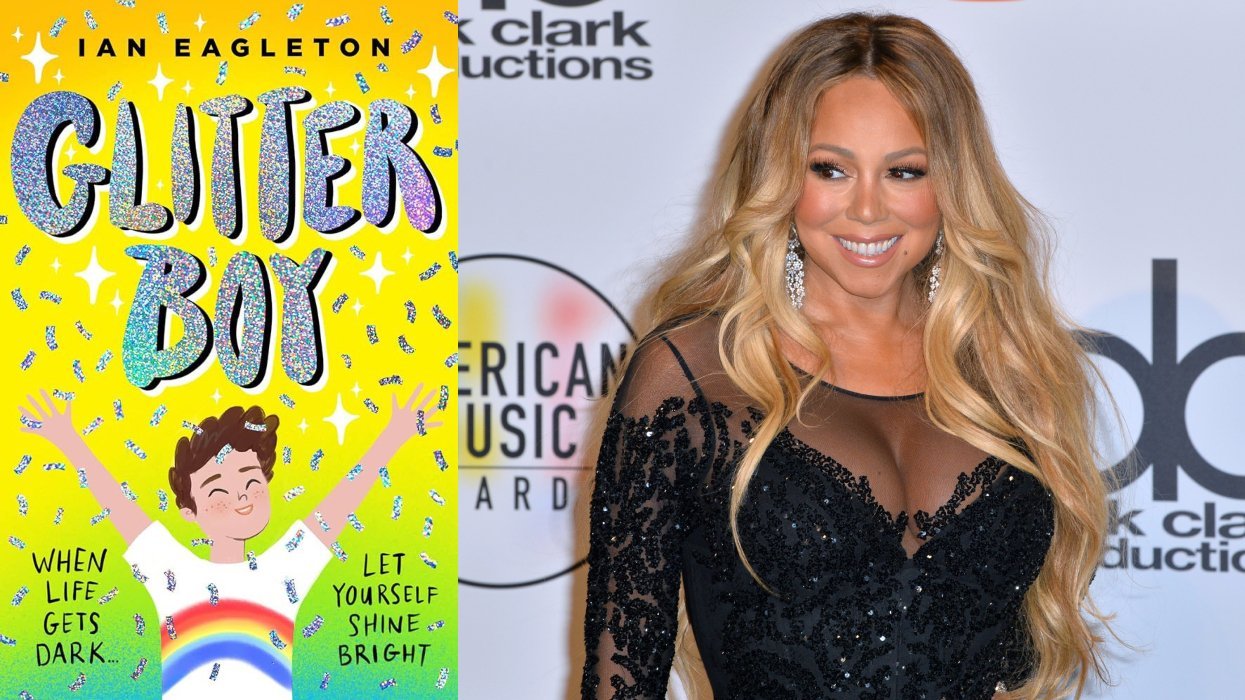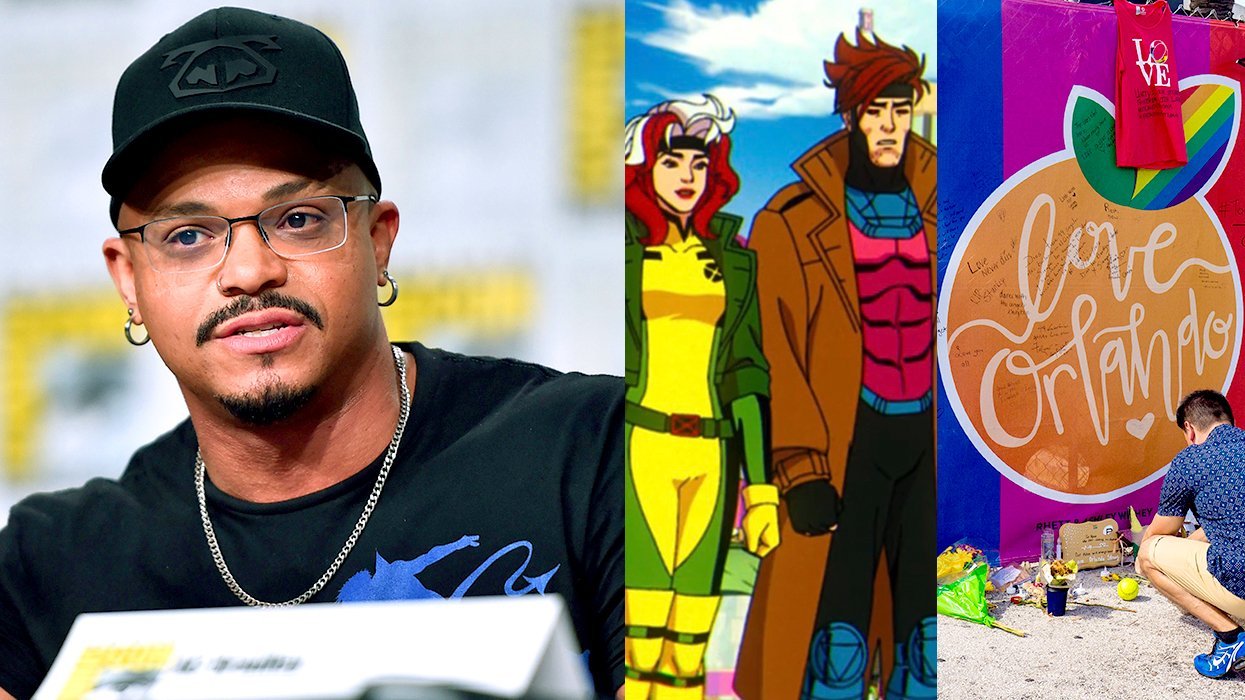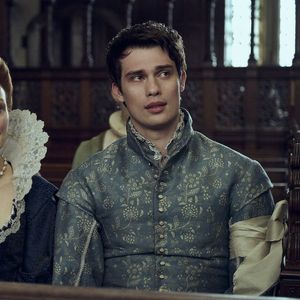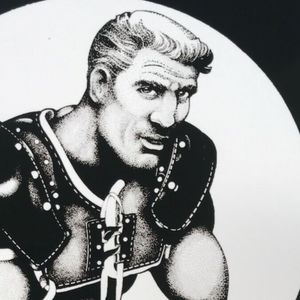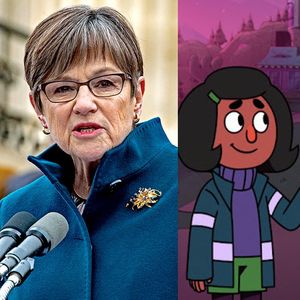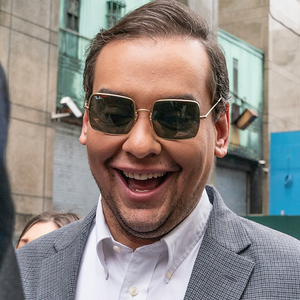Christophe Honore is one of France's most celebrated directors. Over the years he's worked with Isabelle Huppert (Ma Mere), made five films with the talented (and handsome) Louis Garrel (including Dans Paris), and he's even cast porn star Francois Sagat in a film (Homme au Bain).
Over the years, he's worked with Chiara Mastroianni, the daughter of Catherine Deneuve, he's never worked with that iconic actress's mother. Now, in his latest, Beloved (currently in select theaters and not to be mistaken with the book adaptation that starred Oprah Winfrey), he has mother and daughter working together for the first time.
The film is a musical, as his last film, Love Songs (a quirky pansexual romp), was, but this time we see a mother (Deneuve) who had a wild and randy past and how things have changed by the time her daughter (Mastroianni) who is decidedly less lucky and in love with a gay man (played by Paul Schneider), in the glum HIV-era of the 1990s. I recently met with Honore in a backyard garden in Soho to discuss themes in his films, what it was like working with a living legend, and how sexy Louis Garrel is. Although Honore understands English perfectly, we worked with a translator to make sure I understood the nuances of his responses--which, much like his films, balance a level of whimsy with seriousness.
Many people often assume that the movie musical is an American genre, but this is your second movie that is also musical. What do you tell people? Why does the musical exist in France at this point in time?
It's true that there's no musical comedy tradition in France, but that's because we don't have a Broadway, for starters. So we, in fact, have very little tradition for theater with musical comedy, and if I go to the end of that thought process, we don't have actors that sing or dance, either. And that's why someone like Jacques Demy invented a French-type musical style--where the idea is that the actors don't know how to dance or sing. So to that end, we try not to aim for performance, so we aim for a depth and a complexity that is maybe not part of the American musical genre.
But why have them sing at all? Is it because you think the characters can express something through song better than through the spoken word?
Well, it certainly was true with Love Songs, because when they sang, it was when the characters expressed their feelings. But in Beloved it's more like theatrical monologues. It's where the audience can have access to the interior world of the characters and, to that end, the characters are naked before them.
Not to get too film-nerd, it does seem to have direct reference to The Umbrellas of Cherbourg. Especially having Catherine Deneuve, who was in that 1964 film, when she was 17, and now having her return in a musical movie, when she is of course a national treasure. What is that connection for you? Was it a lifelong quest to work with her?
Even if I undertand that the audience may think I chose Catherine Deneuve as a reference to Jacques Demy and the Les parapluies de Cherbourg, it's not true. I chose her because of Chiara, her daughter. Because I have made a few movies with Chiara previously. And in this story that I wanted to tell about parents, a generation of parents that erase the generation of their children; it's parents that were more "brilliant." You know it was interesting to me to choose someone like Catherine who, as you said, is a French national treasure, really a universal treasure, and then to try to work with the ensuing generation, which is Chiara and myself, who is following people like Jacques Demy.
But we've seen Deneuve sing in Eight Women and other movies now, is it easy to disconnect her from her film history? Are you building on her reputation or referencing it?
Of course we are always trying to be the one who is doing that. But it's impossible with someone like Catherine Deneuve. I imagine I work more with iconic people. But my trump card is Chiara. I am sure that Catherine is very different in my movie because of Chiara. That may be because I made the movie, but I find Catherine very palpable; she's very real in her incarnation.
Someone like Francois Ozon, you can see what he's playing on is her quality as an icon. I mean, he almost treats her like a doll. He plays with her like she's a porcelain doll. You know the kinds of dolls our grandmothers gave us, that we could play with, but we had to be careful becuse you didn't want to ruin them. So, you know, we only had one impulse, which was to draw with crayons on their faces. That's a little bit what Francois does with Catherine in Potiche. You know, he takes revenge on her image as an icon. And I think in Beloved, I don't play with her like a porcelain doll. Rather she's like my "Big Jim."
Big Jim? Um, like G.I. Joe?
Yes, you know, I REALLY play with her.
I don't play with her in terms of dressing her up or crayoning on her face. I really work with her.
What about working with Chiara and Louis Garrel. They are something of muses for you. Is that a style for you? Can you make your films, the films you want to make, without the same actors?
You know it's true, I really wrote it for them. People think that for a director to work with the same actor makes it easier, but in fact that's true: it gets harder and harder with each ensuing film. Because you raise the bar higher each time. And you try to bring them to another place each time. So it's true, I'm very pleased with the trajectory that I've made with Chiara and Louis. Even if I have a foreboding feeling tha they are going to know their greatest successes with other filmmakers. But that's kind of always the way it goes. And then they'll come back home.
I've talked to other filmmakers, gay filmmakers, and they have explained that they change what they focus on because there is no economy for gay films or the audience isn't there for gay films. Is that true, or are you just interested in many other things and you don't want to have the label of "gay filmmaker"?
Yeah, I think for people in my generation to label yourself as a gay filmmaker is sort of secondary. Certainly in French film. For people like Chereau who hid their sexuality, it was maybe like that. But in my generation and with filmmakers like Francois Ozon, Gael Morel, we never really hid it. But we didn't make our homosexuality into an ideology either. See, I never wrote a script which had a 'coming out' theme, which is usually the tag for a film one would label as gay.
My gay characters in my films, their homosexuality is usually not their preoccupation. Maybe it's the first time, with this character played by Paul Schneider, where his homosexuality makes him run into a conflict because he falls in love with a woman. But you can see that already that is sort of a weird thing to have in a "gay" film. But it's true that there is pressure from the producers, even in French cinema, even for French screenwriters, they will say, "Well maybe you shouldn't put as many gay characters in your film or there shouldn't be so many nude scenes, or whatever." That's something that is never said to heterosexual directors. Yeah, they never say there are too many heterosexual characters or too many nude scenes.
Never too many naked women...
Oui. What happens as soon as someone knows you are a gay filmmaker, they assume that if you have nude scenes, they assume your'e getting off on it. And it's not true.
Especially if it's Louis Garrell!
The problem with Louis Garrell is not the problem of geting him naked. It's to get him to put his clothes back on because he's VERY exhibitionistic.
Nice... I have read that you've wanted to portray a certain melancholia in this film, and that the younger generation in the film are stuck in a time that is not as "brilliant" as the previous generation. Isn't that a cynical take?
I can see what could be seen as reactionary about it. It could be interpreted as a nostalgia for the past that could be a little silly. That's not my case, because the part of the film that I like the most is the '90s with Chiara. In a certain sense, I find that period more brilliant than the '60s.
You see, I mean, I played with the years of the '60s and the '70s--let's say the 70s because I was born in the '70s but I don't remember much from then--but I played with what is my perception of what the '60s was like for my parents. But it's not somethign that I lived through, it's a perception. So it's a little theatrical and artificial. And as I close in on the '90s, it becomes a little more realistic and personal, so it gives the film a sort of incongruous and odd shape. I don't regret the '60s. But I have to face the fact that--in terms of politically socialogically and culturally--France is on the decline today.
You see, it does show The character of Chiara, no matter how much good will she puts into it, she will never be able to equal the generation of her mother.
Watch the trailer below:








